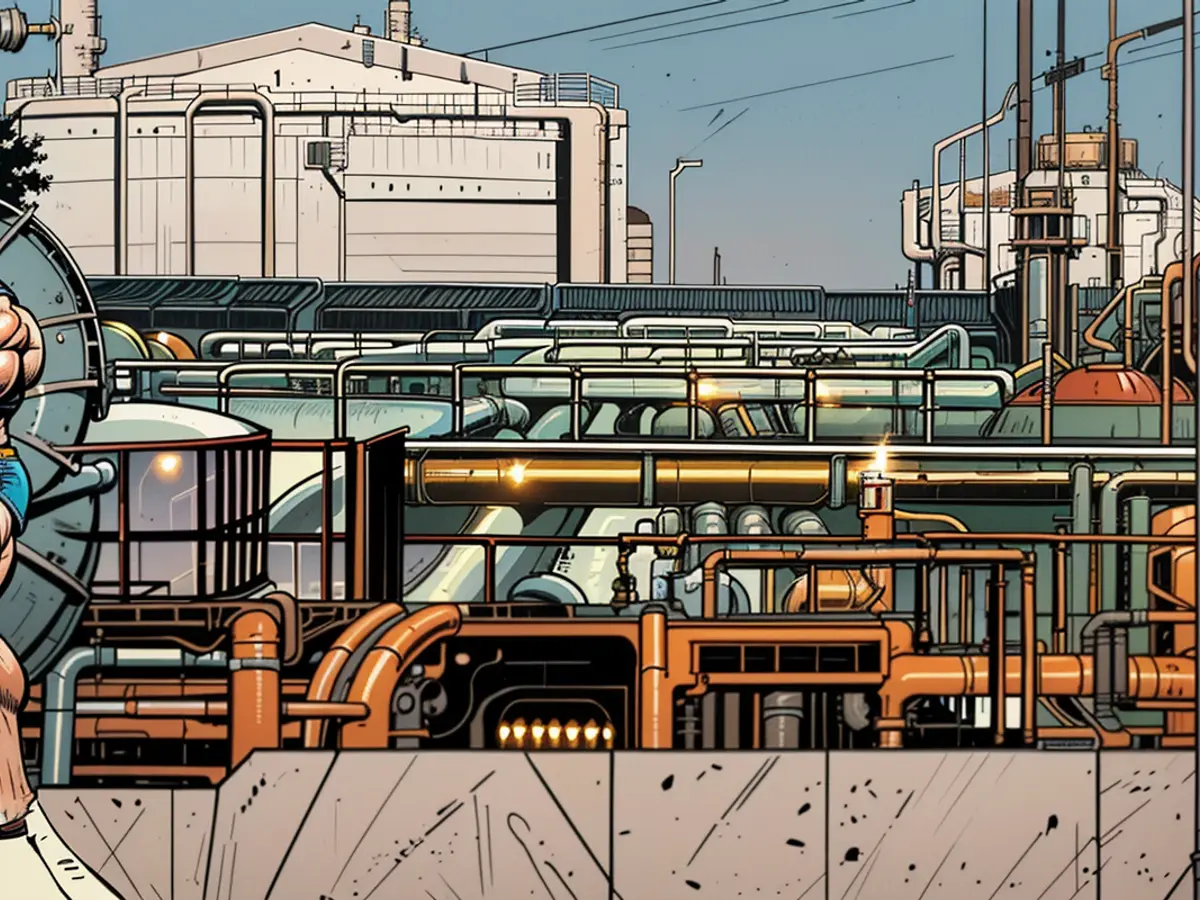Austria and Slovakia switch on EU oil embargo
Kiev restricts the transport of Russian oil through Ukraine. Hungary and Slovakia fear an energy crisis. The two countries have filed a complaint with the EU Commission. They accuse the Ukraine of violating an agreement.
New sanctions of Ukraine against the Russian oil company Lukoil cause concern in the EU. The European Commission announced in Brussels that it had received a complaint letter from Hungary's and Slovakia's Foreign Ministers. The matter allegedly concerns the negative effects of Kiev's decision to ban the transport of Lukoil oil through Ukrainian territory.
Until now, this part of the Druzhba pipeline had been transporting Russian oil through Ukraine to Hungary and Slovakia. A spokesperson for the EU Commission stated that the information in the letter would be examined. At the request of Hungary and Slovakia, the Trade Policy Committee is also scheduled to meet on this Wednesday. From the EU Commission's perspective, there are currently no immediate effects on the security of the EU's oil supply to be expected.
Hungary and Slovakia refer to agreements that they accuse the Ukraine of violating by restricting the oil transit. In this association agreement with the EU, it is stated that the transit of energy resources cannot be obstructed. However, it is unclear from EU circles whether the measure taken by Ukraine could be considered as security-related and thus legitimate. In the EU, there has been an import ban on oil from Russia for a long time. However, for countries that are particularly dependent on pipeline oil from Russia due to their geographical location, there are exceptions.
A part of the Druzhba pipeline runs through Belarus
Hungary's Foreign Minister Peter Szijjarto now demands that the Ukraine's tax exemption be revoked if it does not reverse the transit ban for Lukoil. The Minister also announced that Hungary would continue to block the payment of EU funds for weapons and ammunition deliveries to Ukraine if the decision in Kiev remains unchanged. This amounts to approximately 6.5 billion Euros. According to Szijjarto, the step taken by Ukraine is especially serious because Ukraine imports a lot of electricity through Hungary. In Hungary, it is feared that the stoppage of Russian oil deliveries could lead to an increase in fuel prices for consumers.
If Ukraine is held responsible for this, it would also be a problem for the EU: In Hungary, many people are critical of the EU's strong military support and the Orban government frequently blocks EU decisions for new aid.
Russia accuses Ukraine of an illegal transit blockade. "The transit of energy resources has become a literal button for the Kiev regime to manipulate people, countries, and peoples," comments Maria Zakharova, spokesperson for the Russian Foreign Ministry. The partners of Ukraine should explain to the Kiev leadership that responsible and democratic states do not behave this way. It is a breach of existing law.
The Russian Vice Prime Minister in charge of energy issues, Alexander Novak, stated that Hungary and Slovakia would continue to receive oil. Russia has an interest in continuing to supply its partners Hungary and Slovakia, Novak said, without providing details. He declined to comment on the matter when asked by journalists about the means of delivery. Previously, there had been reports, citing unspecified information from Lukoil, that earlier routes had been activated. A portion of the Druzhba pipeline passes through Belarus.
The EU Commission is concerned about the new sanctions against Lukoil by Ukraine, as Hungary and Slovakia claim these sanctions violate their agreement. Russia accusately labels Ukraine's oil transit blockade as illegal. Hungary's Foreign Minister demands the revocation of Ukraine's tax exemption if it does not reverse the ban for Lukoil, potentially impacting EU fund payments to Ukraine.








